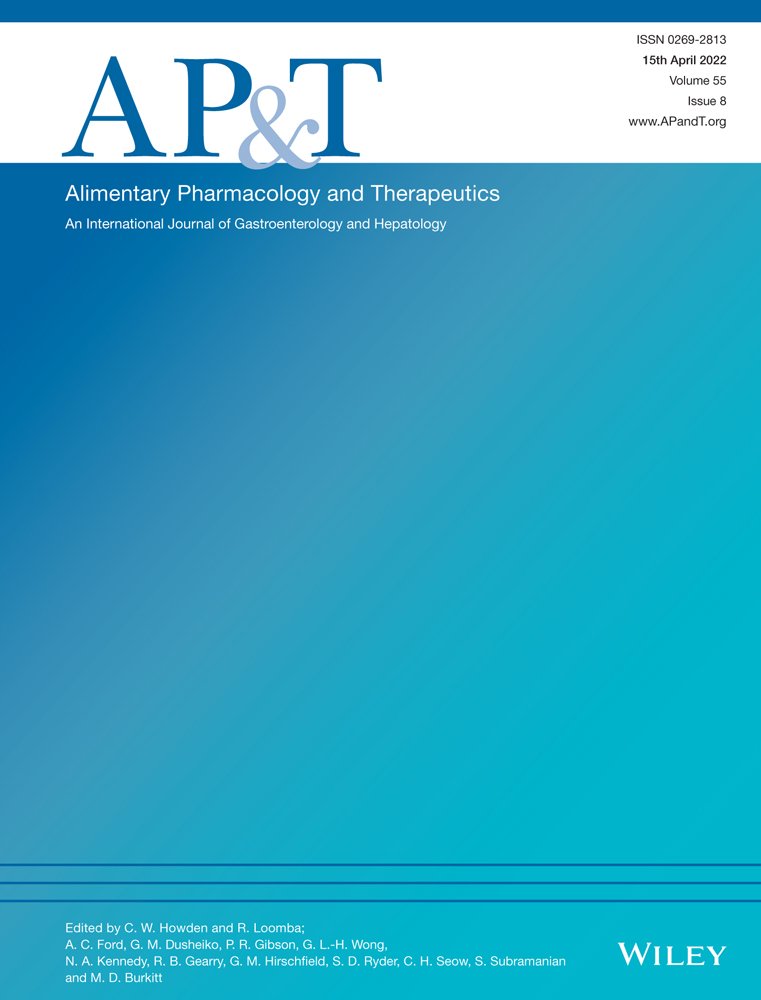Editorial: reply to delayed gastric emptying as an independent predictor of mortality in gastroparesis—it is clinically relevant after all! Authors' reply
LINKED CONTENT
This article is linked to Gourcerol et al papers. To view these articles, visit https://doi.org/10.1111/apt.16827 and https://doi.org/10.1111/apt.16857
We are thankful to Dr Karunaratne and Dr Sharma for their excellent editorial.1 As reminded by the authors, an association between gastric emptying rate and symptom severity remains a matter of debate. However, recent studies suggested that gastroparesis diagnosis based on gastric emptying measurement, rather than symptom, resulted in socio-demographic as well as comorbidities differences.2-4 Likewise, whether the acceleration of gastric emptying results in symptom improvement or not, remains questionable.5, 6 A recent report suggested, however, that discrepant results may rely on the quality of gastric emptying tests, and supported the use of measures performed for at least 3 h.6 Altogether, these data outlined the need for systematic gastric emptying measurement to pose the diagnosis of gastroparesis, at best using optimal tests. This further strengthens Dr Karunaratne and Dr Sharma statement: gastric emptying matters, as does its measurement! One key question raised by Dr Karunaratne and Dr Sharma1 remained partially unanswered: Is the acceleration of gastric emptying in gastroparesis associated with a reduction of mortality rate? Our preliminary data found that the mortality rate at 10 years in patients with persistent delayed gastric emptying was fourfold higher than patients in whom normalisation of gastric emptying was achieved.7 However, no statistical difference was observed among the two groups. Noteworthy, these data were obtained in only 81 patients and our analysis may lack of power to firmly conclude that gastric emptying acceleration does not influence mortality rate. We hope that future studies will be conducted to answer the additional question raised by Dr Karunaratne and Dr Sharma: does gastric emptying acceleration matter?
ACKNOWLEDGMENTS
The authors' declarations of personal and financial interests are unchanged from those in the original article.7
AUTHOR CONTRIBUTIONS
Guillaume Gourcerol: Writing – original draft (equal). Marie Pierre Tavolacci: Writing – original draft (equal).




